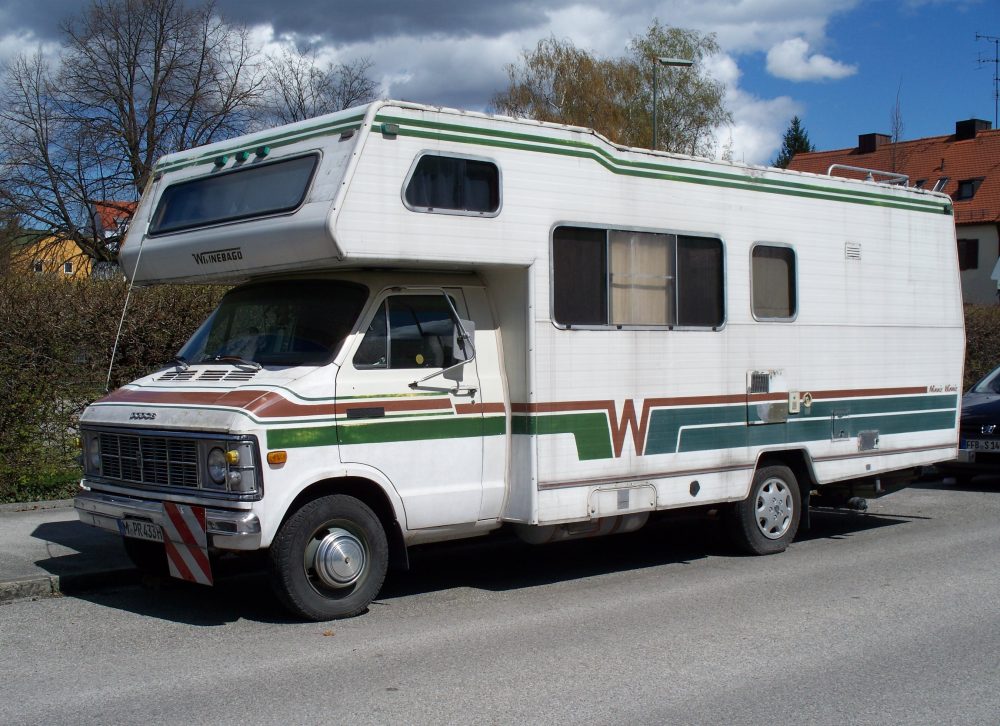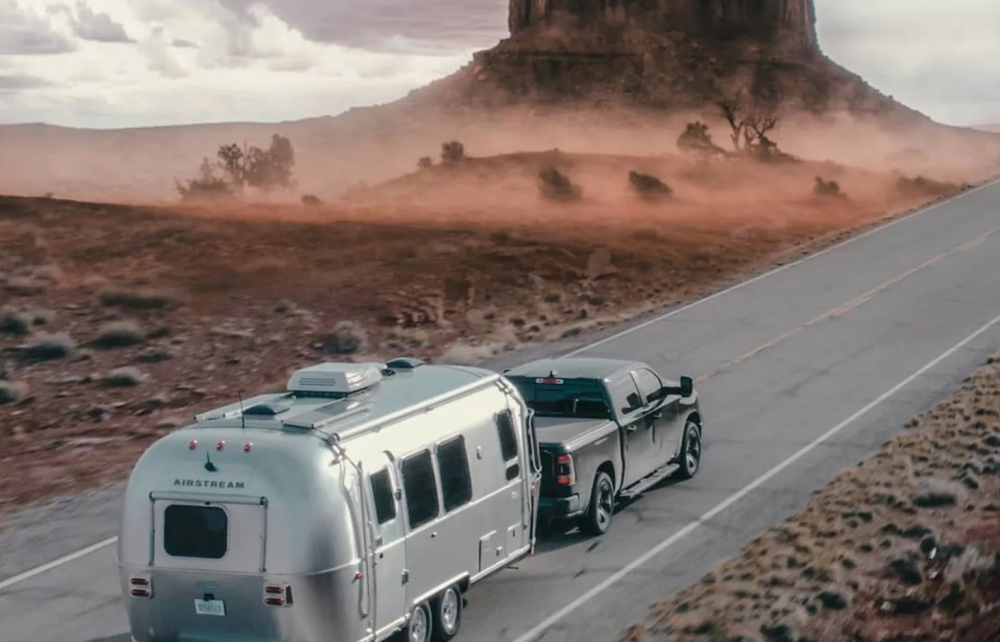Driving an RV across the country can make for a memorable family vacation. You can either buy an RV or rent one from a company. Either way, it’s essential to educate yourself on the rules surrounding driving an RV.
 Source: wikipedia
Source: wikipedia
Do You Need a Special License to Drive an RV?
License requirements to drive an RV vary from state to state and by class. For the most part, you likely won’t need a special license to drive an RV in the United States because they typically don’t require them for RVs under 26,000 pounds. Most RVs fall under this category, meaning you do not need a special license.
However, there are some regulations and special license requirements if your RV is over 26,000 pounds or carries more than 16 people. Find a broken down explanation below about special licenses and how they might pertain to Class A, B, and C RVs.
RV Driver Requirements
There are two kinds of special licenses to be aware of before renting or buying an RV: commercial and non-commercial.
A commercial driver’s license (CDL) is a special license required for those driving large, heavy-duty vehicles, like tractor-trailers and school buses.
Some states require a non-commercial license to drive recreational vehicles (RVs) longer or heavier than a certain threshold.
There are no federal laws surrounding RVs and special licenses. Look into the state your license is from and ensure you have what you need to hit the road.
Special Requirements by State
Every state has its own rules for RV drivers. The following table is a broad outline of each state’s policy. If the state doesn’t require a CDL or Non-Commercial Driver’s License, then you can rent or buy an RV and be on your way.
State laws around RV special license requirements change frequently. Be sure to check your DMV’s requirements.
States that Require a CDL
Seven states may require a CDL for your RV. If you’re driving a class C recreational vehicle, you don’t need to worry about the following policies.
- Arkansas: Vehicles Over 26,000 Pounds
- Connecticut/Hawaii/Kansas/New Mexico/Washington, D.C.: Class B Vehicles Over 26,000 Pounds; Multiple Class A Vehicles with Over 26,000 Pounds Combined
- Wisconsin: Required for Vehicles Over 45 Feet Long
States that Require a Non-Commercial License
Ten states require non-commercial driver’s licenses to drive certain classes of vehicles. As with CDL requirements, no state requires a specific license for class C RVs.
- California: Class B Required for Vehicles Over 26,000 Pounds or 40 Feet; Class A Required if Towing More Than 10,000 Pounds
- Maryland: Class B Required for Vehicles Over 26,000 Pounds
- Michigan: Double “R” Endorsement Required to Tow a Fifth Wheel
- North Carolina/Pennsylvania/Texas: Class B Vehicles Over 26,000 Pounds; Multiple Class A Vehicles with Over 26,000 Pounds Combined
- Nevada: Class B Vehicles Over 26,000 Pounds; Multiple Class A Vehicles with Over 26,000 Pounds Combined; “J” Endorsement Required to Tow More Than 10,000 Pounds if Combined Vehicle Weight is Under 26,000 Pounds
- New York: Recreational Vehicle/”R” Endorsement Required Over 26,000 Pounds
- South Carolina: Class E Required Over 26,000 Pounds; Class F Required Over 26,000 Pounds Combined (Multiple Vehicles)
- Wyoming: Class B Required for Over 26,000 Pounds/Towing Under 10,000 Pounds; Class A Required for Over 26,000 Pounds/Towing Over 10,000 Pounds
 Source: nytimes.com
Source: nytimes.com
Class A RV Requirements
A class A RV is the largest recreational vehicle on the market. They are big, bulky, and not the easiest to drive. They can weigh anywhere from 13,000 to 30,000 pounds and be as long as 45 feet (though most are about 33 feet long).
It’s because of their heavyweight and long body that many states require you to have a special license to drive around. Check your state’s guidelines surrounding special licenses and driving a class A RV.
Class B RV Requirements
If you don’t want the hassle of getting a CDL or non-commercial particular driver’s license, go with a Class B RV. While they’re the smallest recreational vehicle, they’re the easiest to handle and don’t require many hoops to jump through before heading out on your road trip.
They don’t usually weigh more than 9,000 pounds and are the smallest RV type available. They’re vans made into motorhomes, so most states don’t require special licenses.
However, depending on the RV’s weight and whether you’re towing something, some states will require a CDL or a special non-commercial license. Check your state’s guidelines for specifics regarding class B vehicles.
Class C RV Requirements
Class C RVs are smaller and more comfortable to drive than class A recreational vehicles with the same luxurious amenities as a Class C RV. They’re cheaper and come in full, compact, or supersize. Most class C RVs don’t weigh more than 13,000 pounds, but the larger ones might cross the 26,000-pound threshold.
Class C recreational vehicles don’t require any special license unless they weigh more than 26,000 pounds or tow more than 10,000 pounds in weight. Check your state’s guidelines to see if you need a special license.
Conclusion
Taking an RV on the road is a memorable experience for all. Before heading out, make sure you adhere to the license requirements for your state. For the most part, you do not need a special license to drive an RV. However, some states require a CDL or non-commercial special driver’s license for heavier vehicles.
When in doubt, go with a Class B or C RV that weighs under 26,000 pounds. They are smaller and don’t require a special license in any state.




